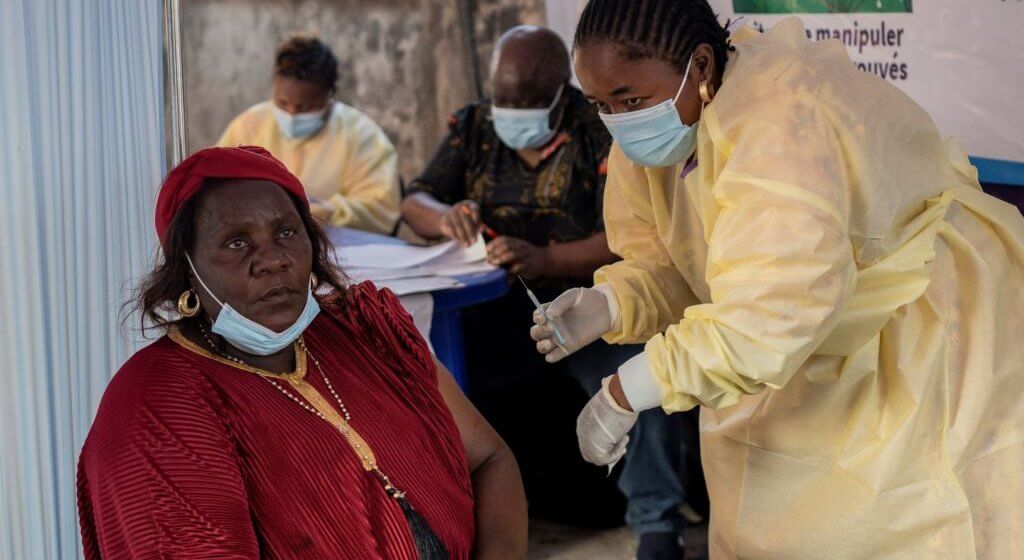|
LISTEN TO THIS THE AFRICANA VOICE ARTICLE NOW
Getting your Trinity Audio player ready...
|
The Democratic Republic of Congo (DRC) launched its first vaccination campaign against mpox on Saturday, October 5, 2024, in Goma, a city in the eastern part of the country that has been severely affected by the virus. The campaign, which initially focused on hospital staff, marked the start of a broader initiative to curb the outbreak that has plagued the region for over a year.
The vaccination campaign came at a time of growing concern over the spread of mpox, also known as monkeypox, which has claimed hundreds of lives in the DRC. More than 30,000 suspected and confirmed cases have been reported across the country since the start of 2024, with 900 fatalities recorded, according to the World Health Organization (WHO). The virus, which spreads through close contact with infected people or animals, causes flu-like symptoms and painful, pus-filled lesions on the skin.
While the launch of the vaccination drive was a significant step forward, the DRC Ministry of Public Health has raised concerns over the limited availability of vaccines. Health Minister Samuel-Roger Kamba emphasized this point in a press conference on Friday, just before the campaign began. He explained that only 265,000 doses were available, a fraction of what is needed for the country’s population of over 100 million.
“As you can imagine, we are not going to solve the problem with 265,000 doses,” Kamba said, underscoring the challenges the country faces in containing the outbreak. He noted that the initial phase of the campaign would prioritize vulnerable groups, particularly healthcare workers and individuals with pre-existing health conditions. These groups are at the highest risk of severe complications if infected with mpox.
Despite the constraints, the DRC government is hopeful for additional international support. Kamba revealed that more vaccines are expected to arrive from France, Japan, and the United States. Last month, U.S. President Joe Biden pledged to donate one million doses of the mpox vaccine to African nations, offering hope that the campaign could expand in the near future.
The WHO has also been a key partner in the DRC’s efforts to manage the outbreak. Matshidiso Moeti, WHO’s Africa Director, hailed the vaccine rollout as “an important step in limiting the spread of the virus and ensuring the safety of families and communities.” In addition to vaccines, the WHO approved a PCR test for detecting mpox, which could significantly improve diagnosis and treatment efforts. The DRC is expected to receive 4,500 test kits, though no specific arrival date has been provided.
The current outbreak in the DRC began last year in the eastern part of the country, a region often burdened with complex humanitarian crises, including ongoing conflicts and health emergencies. This has made it difficult for health authorities to fully control the spread of the virus. In August, the WHO declared mpox a public health emergency after identifying a new, more contagious variant of the virus, known as clade Ib. This variant has heightened concerns about the virus’s spread across Africa, where the Africa Centre for Disease Control and Prevention (CDC) reports that mpox has been detected in 16 countries this year alone.











LEAVE A COMMENT
You must be logged in to post a comment.